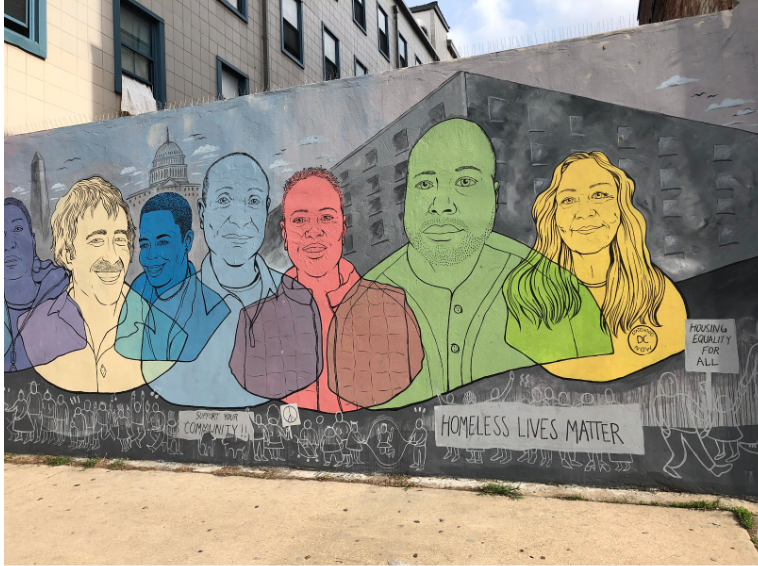By Maureen Mahoney
Flawless Intern

In June, I attended the Mental Health America Conference with the Flawless team. It was three days filled with inspiration, hope, truth, resilience, education, and a strong sense of unity. By the end of the conference, I was already experiencing a profound connection between what I was learning and my daily life.
One of the breakout sessions I attended was “When Illness Meets Poverty: Addressing Housing, Recovery, and Integration.” Mike Koprowski (of Opportunity Starts at Home) and Andrew Sterling collaborated for this presentation. What really stood out to me was Koprowski’s emphasis on how much the circumstances of each individual’s life are impacted by social factors.
“The research is clear,” Koprowski said. “The housing crisis spills over into other sectors like poverty, mental health, and crime.” If someone is homeless, they are more likely to have a mental health condition, a physical health problem, and have a run-in with the criminal justice system. Kropowski made it simple: “if you are a healthcare advocate, you are a housing advocate; if you are an education advocate, you are a housing advocate.” While some may have felt this was pessimistic, I heard the opposite message: a presentation at a mental health conference about a lack of affordable housing shows how all progress is related. If you are able to secure housing, you are less likely to live in poverty. You will be less likely to end up in the criminal justice system, and to experience mental health challenges. Mike Kropowski and Andrew Sterling gave the audience hope, showing us that helping someone in just one area can change their whole life.
After this wonderful presentation, I decided to take a walk outside the hotel to get some fresh air and exercise before the next session. As I was walking, a woman asked me for directions to Union Station. She seemed lost, frazzled, and was pushing a cart full of her belongings. She had no phone, and I knew the station was about half a mile away, so I offered to walk her there. We talked the whole way there. I learned that her name was Bernie and she had come down from New York City for the day for a conference about child labor, an issue that she was involved with in her home country of Nigeria. She currently lives in a women’s shelter in Brooklyn. I told her all about Mental Health America and the presentation I just came from. She was so moved to see people working towards real solutions. I pointed out the mural at the Community for Creative Nonviolence Homeless Shelter as we walked, and she was brought to tears. Bernie put a human face on the statistics and facts I was learning at the conference, on the homeless shelter I passed on the way to work everyday, and on life itself.
We made it to the station, and we got a meal together. Bernie could not stop thanking me. She got on her bus back to New York, just in time to secure a bed at a shelter for the night. I returned to the conference and continued to learn about how adverse life conditions can affect a person’s mental health. Most importantly, I understood how one small act can start a positive chain reaction, which can touch a person’s life. I was very grateful to have had a moment of being able to put what I was learning into real, tangible action and encourage everyone to also take a small (and large) step towards connecting with people who might need a helping hand.






